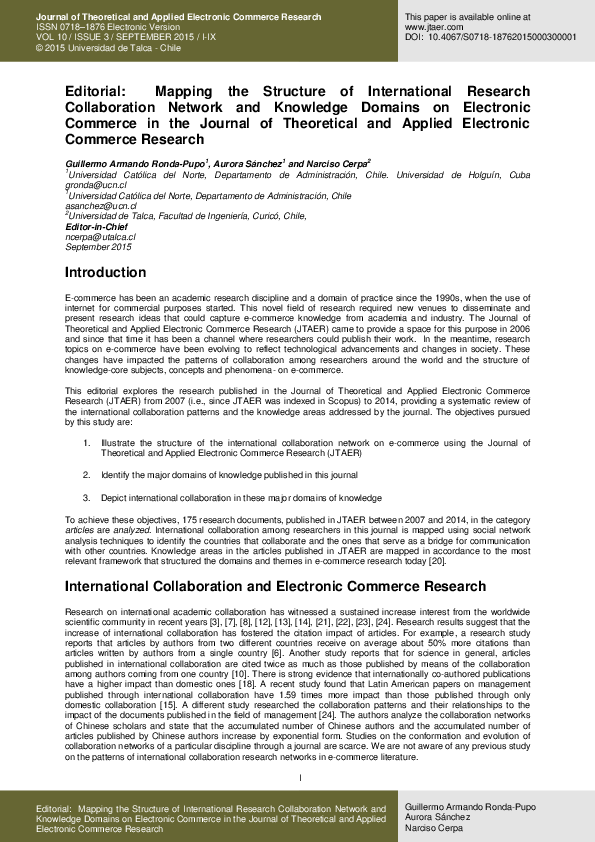Functional Framework for Multivariant E-Commerce User Interfaces
IF 5.1
3区 管理学
Q1 BUSINESS
Journal of Theoretical and Applied Electronic Commerce Research
Pub Date : 2024-02-16
DOI:10.3390/jtaer19010022
引用次数: 0
Abstract
Modern e-businesses heavily rely on advanced data analytics for product recommendations. However, there are still untapped opportunities to enhance user interfaces. Currently, online stores offer a single-page version to all customers, overlooking individual characteristics. This paper aims to identify the essential components and present a framework for enabling multiple e-commerce user interfaces. It also seeks to address challenges associated with personalized e-commerce user interfaces. The methodology includes detailing the framework for serving diverse e-commerce user interfaces and presenting pilot implementation results. Key components, particularly the role of algorithms in personalizing the user experience, are outlined. The results demonstrate promising outcomes for the implementation of the pilot solution, which caters to various e-commerce user interfaces. User characteristics support multivariant websites, with algorithms facilitating continuous learning. Newly proposed metrics effectively measure changes in user behavior resulting from different interface deployments. This paper underscores the central role of personalized e-commerce user interfaces in optimizing online store efficiency. The framework, supported by machine learning algorithms, showcases the feasibility and benefits of different page versions. The identified components, challenges, and proposed metrics contribute to a comprehensive solution and set the stage for further development of personalized e-commerce interfaces.多变量电子商务用户界面的功能框架
现代电子商务在很大程度上依赖先进的数据分析来进行产品推荐。然而,在增强用户界面方面仍有尚未开发的机会。目前,网上商店向所有客户提供的都是单一页面版本,忽略了个人特点。本文旨在确定实现多种电子商务用户界面的基本要素并提出一个框架。本文还试图解决与个性化电子商务用户界面相关的挑战。研究方法包括详细介绍为多种电子商务用户界面提供服务的框架,并展示试点实施结果。概述了关键组成部分,特别是算法在个性化用户体验中的作用。结果表明,试点解决方案的实施取得了可喜的成果,满足了各种电子商务用户界面的需求。用户特征支持多变量网站,算法促进了持续学习。新提出的衡量标准可有效衡量不同界面部署所导致的用户行为变化。本文强调了个性化电子商务用户界面在优化在线商店效率方面的核心作用。该框架在机器学习算法的支持下,展示了不同页面版本的可行性和优势。确定的组成部分、面临的挑战和建议的衡量标准有助于提供全面的解决方案,并为进一步开发个性化电子商务界面奠定基础。
本文章由计算机程序翻译,如有差异,请以英文原文为准。
求助全文
约1分钟内获得全文
求助全文
来源期刊
CiteScore
9.50
自引率
3.60%
发文量
67
期刊介绍:
The Journal of Theoretical and Applied Electronic Commerce Research (JTAER) has been created to allow researchers, academicians and other professionals an agile and flexible channel of communication in which to share and debate new ideas and emerging technologies concerned with this rapidly evolving field. Business practices, social, cultural and legal concerns, personal privacy and security, communications technologies, mobile connectivity are among the important elements of electronic commerce and are becoming ever more relevant in everyday life. JTAER will assist in extending and improving the use of electronic commerce for the benefit of our society.

 求助内容:
求助内容: 应助结果提醒方式:
应助结果提醒方式:


